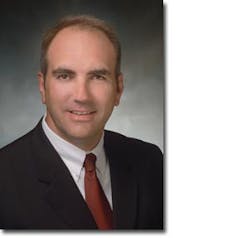With SPCC, Clarity Helps
Editor’s Note: As an active participant on the Airports Committee of the National Air Transportation Association, Avfuel’s Joel Hirst relates that fixed base operators and airline refueling companies continue to have questions about EPA’s Spill Prevention, Control and Countermeasure (SPCC) plan. It’s an industry sector that seeks clarity. Hirst agreed to share his leading questions/concerns from the field, along with some answers ...
Aviation fuel facilities across the nation are scrambling to understand and conform to updates of new and existing SPCC plan requirements. Without more information and definition from the Environmental Protection Agency, it’s difficult for owners and/or operators of fuel storage facilities to know how to prepare. Here are some of the top questions from operators in the field.
Q: EPA has issued the date of July 1, 2009, for regulated facilities to prepare a new or revised Spill Prevention, Control and Countermeasure (SPCC) Plan. Does this mean that facilities have until that date to start using an SPCC plan?
A: The date of July 1, 2009, applies to two things:
1) revision and implementation to meet more stringent regulations such as tank testing and brittle fracture requirements in existing SPCC plans; and
2) the implementation of SPCC plans for regulated facilities built after August 16, 2002.
Facilities built before August 16, 2002 — according to EPA regulations — should already have a plan in use. If there is no SPCC plan in place for a regulated facility built before that date, the facility is currently in violation and could be fined by an inspector.
The bottom line is, if a fuel storage facility requires an SPCC plan and doesn’t have one, the facility will need to put one in place as soon as possible in order to comply with EPA regulations.
* * *
Q: Is my fuel storage facility covered under my airport sponsor’s SPCC plan?
A: Many believe that the airport’s plan covers his or her operation, especially if, as in many cases, the FBO leases fuel storage facility tanks from an airport. This may or may not be true. It is the owner and/or operator of the fuel storage facility who has the responsibility to verify whether there is a plan in place, and that it is being implemented.
* * *
Q: Is it possible for a facility to meet these SPCC requirements without expensive construction?
A: The EPA has listed several alternatives for SPCC plan compliance that aren’t necessarily expensive, nor do they require major construction projects. For instance, according to EPA’s revised refueler rules, an FBO must provide some method of capturing a spill in the vicinity of where a refueler truck is parked (general secondary containment rule). Some inexpensive possibilities include diversions, active containment systems, or facility spill kits with appropriate procedures.
* * *
Q: Am I required to have size-specific containment for the loading/offloading of my fuel storage facility?
A: The EPA has proposed a definition for the term loading rack to clarify the issue of whether or not the fuel storage facility requires size-specific containment.
If a facility is deemed a load/offload rack, the operator is required to have size-specific containment. If it’s an offload area (transfer), the facility just needs to comply with the general secondary containment rule.
* * *
Q: What does SPCC plan development cost?
A: Costs depend on the size and scope of the operation: General aviation airports can expect a range from $2,500 to $7,000; whereas more expansive, commercial airports can expect more.
* * *
Q: Where can I find more information on EPA SPCC requirements?
A: The EPA is expected to release updates on a definition of loading rack and containment requirements in the coming months. I advise everyone to (frequently) visit www.epa.gov/emergencies/content/spcc/index.htm for news and updates.
* * *
The road to proper SPCC compliance may not be as complicated as it seems at first glance. Anyone who has an SPCC question related to a facility or operation should consult a professional engineer (PE) who has experience in airport and aviation operations. An experienced PE can explore options for an SPCC plan that will meet necessary requirements in the most cost-effective way possible.
